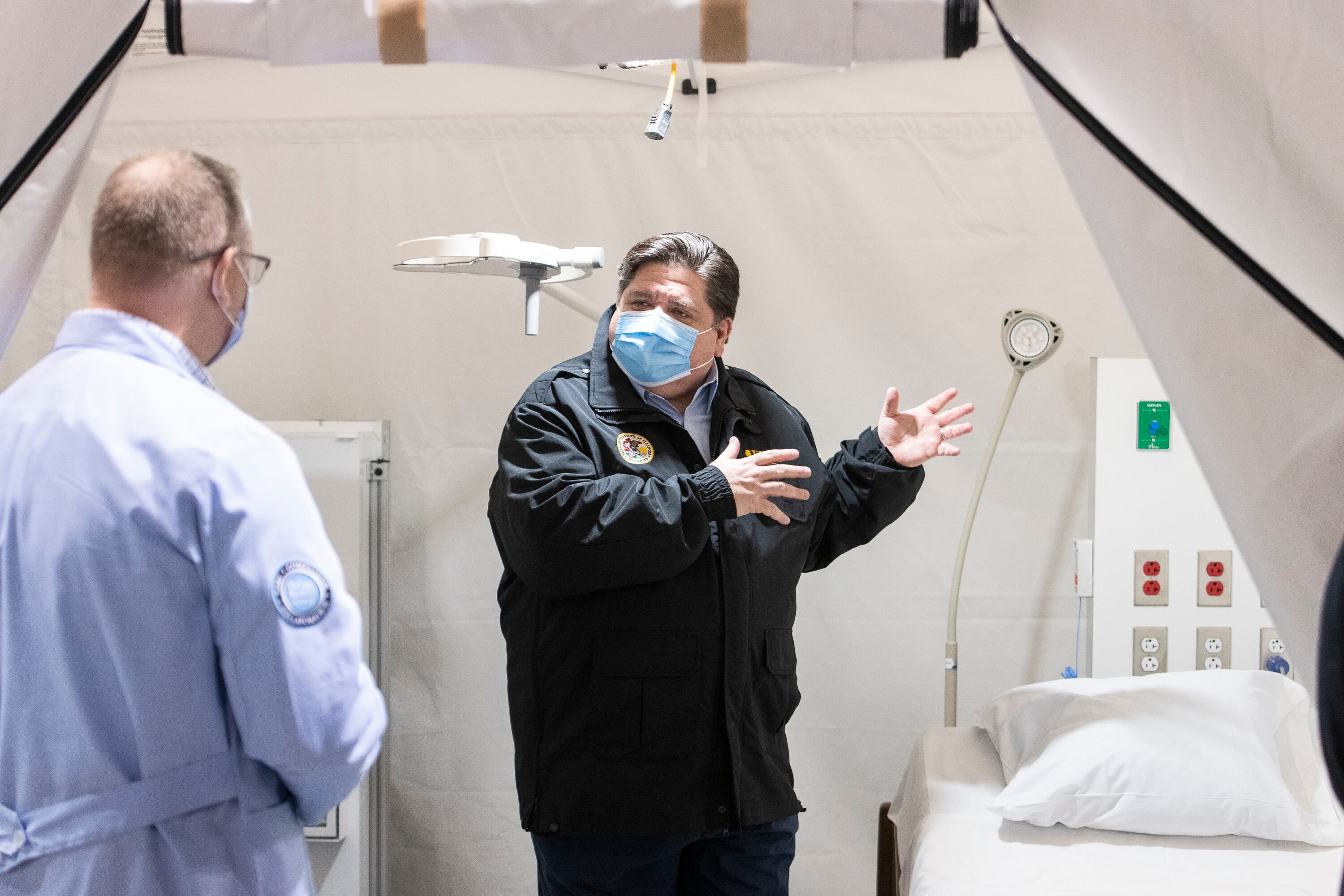Gov. J.B. Pritzker announced that K-12 teachers, higher education employees, college students, and all healthcare providers will be required to get the coronavirus vaccine beginning Sept. 5.
A statewide indoor mask mandate for residents 2 and up starts Aug. 30.
“Vaccination remains our strongest tool to protect ourselves and our loved ones to restore post-pandemic life to our communities,” said Pritzker at a press conference on Thursday. “Most crucially to maintain our healthcare system’s ability to care for anyone who walks through their doors that needs help.”
School employees, students, and healthcare providers must get the first dose of the vaccine shot in September or submit to testing at least once a week or more. If individuals do not do either, they will not be able to enter healthcare facilities or school buildings.
Illinois is the latest state to institute a vaccine mandate for school workers, joining California, Connecticut, Hawaii, Oregon, and Washington.
The Illinois mandate comes as nearly 2 million K-12 students and about 680,000 students in higher education are returning to classrooms across the state and the highly contagious delta variant is causing a surge in coronavirus cases.
The U.S. Food and Drug administration approved the Pfizer-BioNTech vaccine on Monday for those 16 and older. For children between 12 and 15 and immunocompromised individuals who need a third dose, the vaccine will continue to be available under emergency use authorization.
The administration’s decision has opened a pathway for school districts around the country to require school employees to get vaccinated with fewer legal roadblocks.
Several Illinois school districts had already issued vaccine mandates for teachers before FDA approval. Earlier this month, Chicago Public Schools, the largest school district in the state and the third largest in the country, ordered teachers to be vaccinated by Oct. 15 unless they qualify for a medical or religious exemption. Educators who do not comply will be ineligible for work.
Smaller school districts throughout the state such as Stevenson High School District 125 and Wheeling Community Consolidated District 21 have similar mandates.
Earlier this month, Pritzker announced that all K-12 public schools employees and early childhood care providers were to wear masks in schools and during indoor extracurricular activities.
Schools that do not implement the mask mandate the state board of education could lose state recognition, resulting in a loss of state funding and blocking sport teams from participating in state athletic associations. This has caused tension between school leaders, parents, and the state board of education which heated up during the board’s recent meeting.






